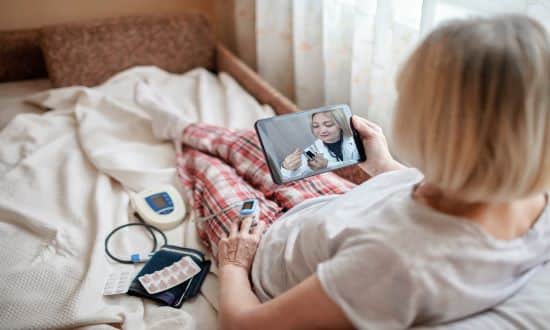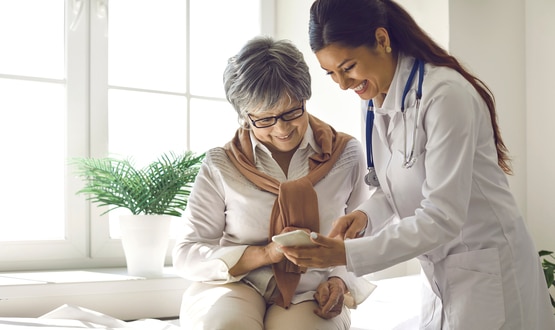Digital Health Coffee Time Briefing ☕
- 1 December 2023

Your morning summary of digital health news, information and events to know about if you want to be “in the know”.
👇 News
😟 The Organisation for the Review of Care and Health Apps (ORCHA) has awarded Qwell, Kooth’s adult mental health support service, an exceptionally high assessment score of 90%. The assessment demonstrates Kooth’s commitment to safety, accessibility, person-centred support and evidence-based clinical outcomes. ORCHA provides an independent assessment of health and medical apps, reviewing them against stringent data, usability and accessibility, and professional assurance measures as well as ensuring they are compliant with current standards, regulations and good practice. ORCHA provides services to NHS England, Health Education England, NHSE/I, CQC, NICE and NHS providers in 70% of regions.
👵 HC-One has taken a significant step in its innovative digital transformation journey through a collaboration with Radar Healthcare to enhance resident care across 262 homes in England, Scotland and Wales through a new and improved reporting system. HC-One’s digital transformation journey will ultimately see HC-One pioneering a fully integrated digital care platform, bringing together medication management, digital care plans and Radar Healthcare’s event reporting and quality assurance system into one place, and one device. In due course, this integration will go beyond HC-One’s homes and link in with secondary and primary care providers (e.g., GP records) to provide a seamless approach to care documentation, and care provision.
👨⚕️ Aide Health, the health-tech startup that helps patients and clinicians better manage and understand long-term health conditions, has added hypertension to its multi-morbidity management platform. The launch follows the successful rollout of pathways for type 2 diabetes and asthma. The digital platform, currently in use in Primary Care Networks across the UK, has led to 75% medicine adherence rates in its users and 80% retention after 30 days. Aide will now support patients living with hypertension by helping them track their blood pressure, identify any challenges and concerns with their medicines and improve their knowledge of the condition. Insights generated from the patient app will also help facilitate shared decision-making with their clinician.
👨💻 Sumit Rana, executive vice president of research and development at electronic health records company Epic, is working in one of the centers of artificial intelligence efforts in health IT. His days are filled with, among other things, creating ways AI can help doctors and nurses today and into the future. Epic is using AI and ambient listening technology in an effort to improve patient-provider interactions. It’s enabling physicians to generate progress notes from a patient-provider conversation in the exam room. It’s allowing doctors to instantly create a draft response to a patient’s question. It’s showing providers what’s new with a patient since they last saw the patient. And it’s working on AI assisting staff with medical coding.
🏥 Health systems in Pennsylvania and New Jersey have turned to electronic models, or “digital twins,” that allow clinicians to test the treatment on patients before enacting them at the bedside. Here is how three health systems are using digital twins that Becker’s has covered since April 2023: Edison, N.J.-based Hackensack Meridian Health is pulling patient data from the EHR, wearables and patients’ genetic information to create models of individual patient organs. Eventually, the health system aims to create a simulation of the entire patient. Philadelphia-based Thomas Jefferson University uses an artificial intelligence-powered platform called BigBear.ai that allows the hospital to test different operational scenarios and see how the hospital responds to stress. Pittsburgh-based UPMC created digital models that allow clinicians to adjust medications or treatments.
❓ Did you know that?
Six in ten (57%) NHS employees with knowledge of current data systems complain that patient data is isolated and inoperable, highlighting the need for greater accessibility to unlock valuable insights, according to healthcare consultancy Acumentice.
📖 What we’re reading
More needs to be done to support and empower general practice staff and patients themselves to address the safety risks that can arise from phone, video and online consultations, according to a new UK-wide study of remote consulting in general practice. While most remote GP consultations are safe, the Remote by Default study finds that GP consultations conducted remotely carry more risk for patients with some urgent conditions including new chest or abdominal pain, palliative care, physical injuries or diabetes. Safety risks include missed or inaccurate diagnoses, under-estimation of severity, delayed referral and treatment and inadequate follow-up.
🚨 This week’s events
1 December , Olympia London – Digital Transformation Week Global




